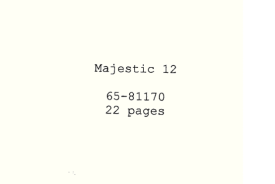Age-related memory loss and Alzheimer's disease are two separate medical conditions. The diseases arise from two different parts of the brain's hippocampus, the region of the brain related to memory, according to a new study conducted by scientists from the Columbia University Medical Center.
The research was published online, Wednesday in Science Translational Medicine.
The scientists also found that the deficiency of the gene, RbAp48 in the hippocampus causes age-related memory loss and this form of memory decline is reversible.
They arrived at this conclusion after conducting an experiment in mice. The researchers were able to control the memory loss by controlling the gene expression in mice.
Although people with age-related memory loss and Alzheimer's might display similar symptoms, the two conditions affect different regions of the hippocampus. While Alzheimer's disease affects the entorhinal cortex (EC), age-related memory affects the dentate gyrus (DG).
When the researchers analysed gene expression of DG brain cells in healthy people aged from 33 to 88, they found that the expression of the RbAp48 gene demonstrated a considerable, steady decline with age.
"The molecular pathway we found in aging has not been implicated in Alzheimer's," said Dr. Scott Small, professor of neurology and director of Columbia's Alzheimer's Research Center, a senior author of the study. "That goes back to confirm the very important anatomical distinction between Alzheimer's and aging."
Scientists then examined the results when the gene expression was modulated in mice.
When RbAp48 protein was switched off in young mice, they reflected memory glitches like older mice, performing poorly on a series of memory tests. On the other hand, when the protein was increased in older mice, they performed equally to younger mice on memory tests.
"We found that we can make older mice look like younger mice cognitively," Small said.
"The fact that we were able to reverse age-related memory loss in mice is very encouraging. At the very least, it shows that this protein is a major factor, and it speaks to the fact that age-related memory loss is due to a functional change in neurons of some sort. Unlike with Alzheimer's, there is no significant loss of neurons," said Dr. Eric R. Kandel, lead researcher.
© 2026 University Herald, All rights reserved. Do not reproduce without permission.








